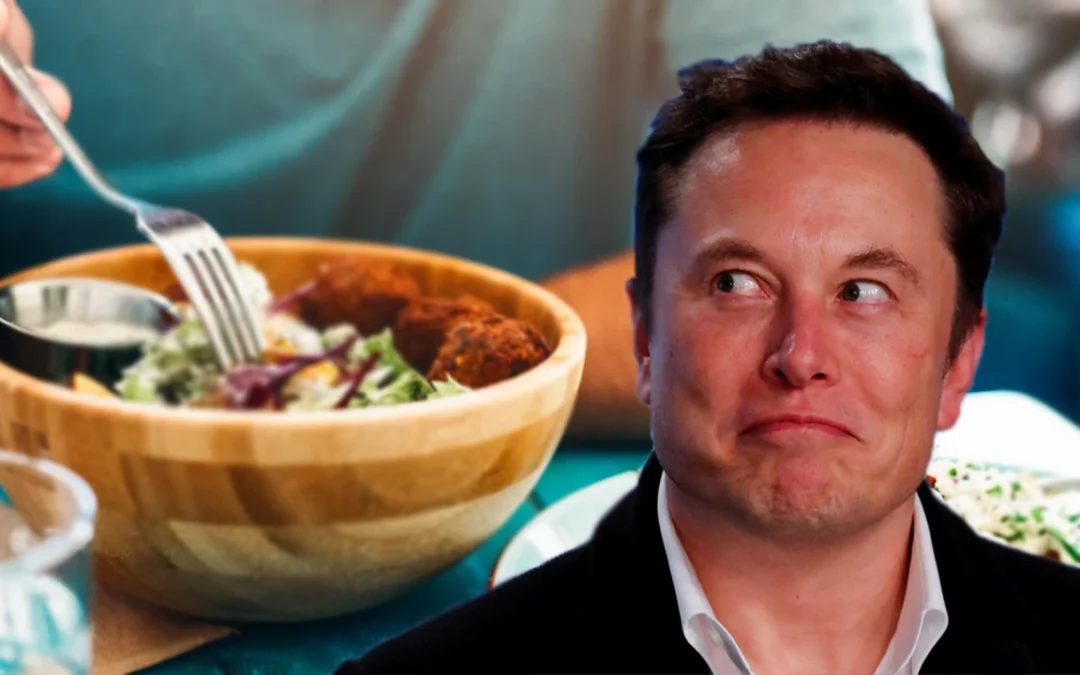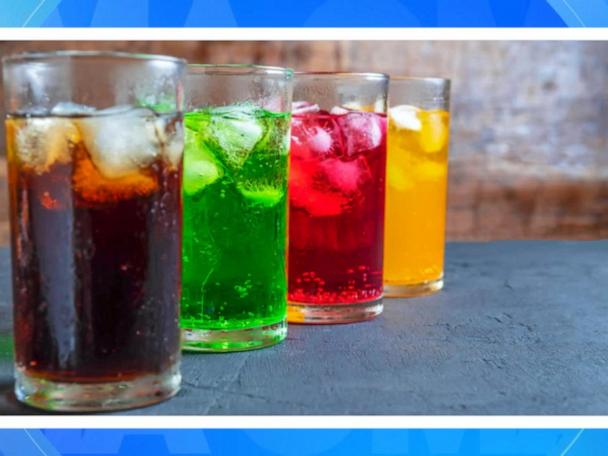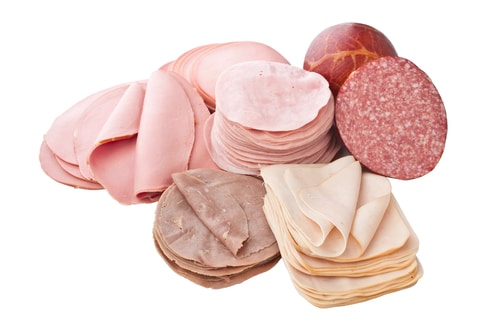Food is something we trust, something we share with friends, family, and loved ones. We assume the contents on our plates match the labels and that every bite is as wholesome as it seems. But here’s the thing: not everything in your fridge or pantry is as innocent as it appears.

Beneath the shiny packaging, clever marketing, and tempting images lies a side of the food industry you might not expect, a side that could make you rethink your next grocery trip entirely. Today, we’re uncovering the hidden ingredients and preparation methods that might make you stop eating certain foods altogether.
Elon Musk has a unique way of blending innovation with thought-provoking commentary, and one of his more controversial remarks involves consumer products. He suggested that once we learn the true nature of how certain popular items are made, many people would reconsider buying them altogether. Musk’s claim is based on the unsettling truths behind some of the most commonly consumed foods and products, revealing disturbing manufacturing processes, unethical practices, and even harmful ingredients. Below is a deeper dive into 15 products Musk would likely suggest you stop purchasing once you understand the reality of what they’re made from.
- Seafood
Elon Musk, once a self-proclaimed fish lover, admitted that the truth about the seafood industry turned him off. While seafood might appear pristine, much of the industry involves unsustainable and unethical practices. Industrial fishing, particularly with large trawlers, is a massive problem. These vessels catch not only fish but also endangered species and other marine life in their nets, disrupting ecosystems. The fish are then transported in unsanitary conditions, packed together in cramped, filthy environments, which raises concerns about food safety. Given the environmental impact and the treatment of marine life, opting for sustainably sourced seafood or reconsidering eating fish altogether might be a better choice.
- Margarine
Margarine is often marketed as a healthier alternative to butter, but the truth about how it’s made is far less appetizing. The production of margarine involves vegetable oils like soybean, sunflower, or palm oil, which are subjected to chemical processes like hydrogenation to solidify the oils.
This process creates harmful trans fats, known for increasing bad cholesterol and heightening the risk of heart disease. The oils are often derived from genetically modified crops and treated with harmful chemicals like glyphosate. Furthermore, margarine contains artificial colors, emulsifiers, and preservatives like BHT, a chemical linked to cancer. In essence, margarine might be less natural and more harmful than butter, with dubious health implications.

- Civet Coffee (Copp’ Luak)
Civet coffee, or Kopi Luwak, is one of the world’s most expensive coffees. It’s made from beans that have passed through the digestive system of a civet cat. The process, which supposedly creates a smoother, less acidic cup of coffee, might sound exotic and luxurious. However, behind the scenes, the commercial production of Kopi Luwak involves the cruel confinement of civet cats in small cages, forcing them to eat coffee cherries to produce more beans. This inhumane treatment of animals, combined with the fact that over 80% of the coffee sold as authentic Kopi Luwak is actually fake, makes this product highly controversial. The ethical issues alone might make you think twice before buying a cup.
- Fast Food Burgers
Fast food burgers are notorious for their unhealthy ingredients. A single burger can contain over 1,000 calories and is often packed with high levels of sodium and cholesterol. What’s even more concerning is that the beef in these burgers often comes from multiple cows, sometimes from different countries, which increases the risk of contamination with harmful bacteria like E. coli. Moreover, the addition of ammonia-treated fillers, known as “pink slime,” is a practice that stretches production but raises serious questions from different countries, which increases the risk of contamination with harmful bacteria like E. coli. Moreover, contribute to environmental degradation due to factory farming practices.
- Processed Vanilla Flavors
When you indulge in vanilla-flavored products, you might be consuming a flavor that comes from surprising and unappealing sources. Artificial vanilla flavoring, often used in processed foods, is sometimes derived from castoreum, a secretion from beaver anal glands. While rare due to its high cost, the idea that vanilla might come from such a source is enough to turn many people away. Even more commonly, artificial vanilla comes from synthetic vanillin, which is made from wood pulp or clove oil. These flavorings are far removed from the natural vanilla beans you might expect and represent a broader trend in using synthetic ingredients to replace natural ones in the food industry.
- Tomato Ketchup
Tomato ketchup is a ubiquitous condiment, but it comes with hidden health risks. Commercial ketchup contains large amounts of sugar, high fructose corn syrup, and sodium. These ingredients are detrimental to health, contributing to obesity, cardiovascular disease, and diabetes over time. The acidity of ketchup can aggravate conditions like acid reflux and heartburn. Preservatives and additives used in ketchup have been linked to various health issues, including inflammation and kidney problems. When consumed frequently, ketchup can also disrupt insulin levels, leading to long-term health issues.
- Red Food Dyes

If you’ve ever enjoyed a red-colored food or drink, it might have been dyed with crushed cochineal insects. This red dye, called carmine or cochineal extract, is derived from these insects and has been used for centuries in food, cosmetics, and even textiles. While the FDA allows small amounts of this dye in food, it’s enough to make some people uncomfortable, especially those with vegan, vegetarian, or kosher diets. While natural red dyes like carmine have been used for ages, synthetic red dyes, such as Red #40, derived from petroleum byproducts, are even more common. These artificial dyes have been linked to health risks, including hyperactivity in children and potential cancer risks.- Canned Mushrooms
Canned mushrooms may not seem like a controversial item, but they contain a disturbing secret. According to FDA regulations, canned mushrooms are allowed to contain a certain number of natural contaminants like maggots and mites. In fact, a can of mushrooms may legally contain up to 20 maggots per 600 grams. While the FDA assures that such contaminants pose minimal health risks, many people would find the idea of eating insects—regardless of how harmless they may be—unpalatable. Fresh mushrooms, though more labor-intensive to prepare, are a better alternative for those concerned about unwanted extras in their meals.
- Bread
Bread is a staple food, but the modern loaf often contains far more than you might expect. In addition to refined flour, many mass-produced breads contain preservatives, artificial flavors, and dough conditioners to extend shelf life and enhance texture. Some types of bread are even made with additional chemicals to speed up the production process, contributing to higher levels of sugar and salt. These ingredients can have negative effects on your health, contributing to obesity, diabetes, and other chronic conditions. Opting for whole-grain, preservative-free breads is a healthier alternative.
- Processed Meats

- Processed Meats
Processed meats like sausages, hot dogs, and deli meats are staples in many diets, but they come with significant health risks. These products often contain nitrates and nitrites, chemicals used to preserve the meat and enhance color. Unfortunately, these chemicals have been linked to an increased risk of cancer, particularly colorectal cancer. Processed meats are also high in sodium, unhealthy fats, and cholesterol, all of which can contribute to heart disease, high blood pressure, and obesity. Choosing fresh, unprocessed meats and limiting consumption of processed options is a safer choice.
- Frozen Foods
Frozen meals are convenient, but they often come with a hidden downside. Many frozen foods are packed with artificial additives, preservatives, and unhealthy fats to maintain texture and flavor. Additionally, the processing involved in preparing frozen meals can strip away much of their nutritional value. Some frozen meals are also loaded with high levels of sodium and sugar, making them a poor choice for anyone trying to maintain a healthy diet. Opting for fresh or homemade meals is a better, healthier alternative.
- Energy Drinks
Energy drinks may promise to boost your energy levels, but they often come with a host of negative side effects. Loaded with caffeine, sugar, and artificial stimulants, these drinks can lead to dehydration, heart palpitations, and anxiety. They can also disrupt sleep patterns and contribute to weight gain due to their high sugar content. The long-term consumption of energy drinks has been linked to increased risk of heart disease and other health problems, making them a poor choice for those looking to stay healthy.
- Non-Dairy Creamers
Many people use non-dairy creamers as a substitute for milk or cream in their coffee or tea. However, these creamers are often packed with hydrogenated oils, which contain unhealthy trans fats that increase the risk of heart disease. They also contain added sugars, artificial flavors, and preservatives, making them far from a healthy alternative to milk. For a healthier option, try using plant-based milks like almond or oat milk, which contain fewer additives and offer nutritional benefits.
- Snack Foods
Snack foods like chips, cookies, and crackers are often marketed as tasty and convenient, but they are typically loaded with unhealthy fats, sugars, and artificial flavors. Many of these products are made with refined flour and preservatives, contributing to weight gain, high cholesterol, and other health problems. Additionally, many snack foods are deep-fried, further increasing their unhealthy fat content. Choosing whole-food snacks like fruits, nuts, and seeds is a healthier alternative.
- Soft Drinks
Soft drinks are a staple in many diets, but they are packed with sugar and empty calories. The high sugar content of sodas can contribute to obesity, diabetes, and other chronic health conditions. In addition to sugar, sodas often contain artificial sweeteners, colorings, and preservatives that are harmful to your health. Opting for water, herbal teas, or natural fruit juices is a healthier choice for hydration.
Elon Musk’s list of products you should reconsider buying serves as a wake-up call to consumers. Many of the everyday products we consume are made with ingredients and processes that are harmful to both our health and the environment. By making more informed choices and opting for ethical, sustainable alternatives, we can start to reduce our impact and improve our overall [health and well-being].



